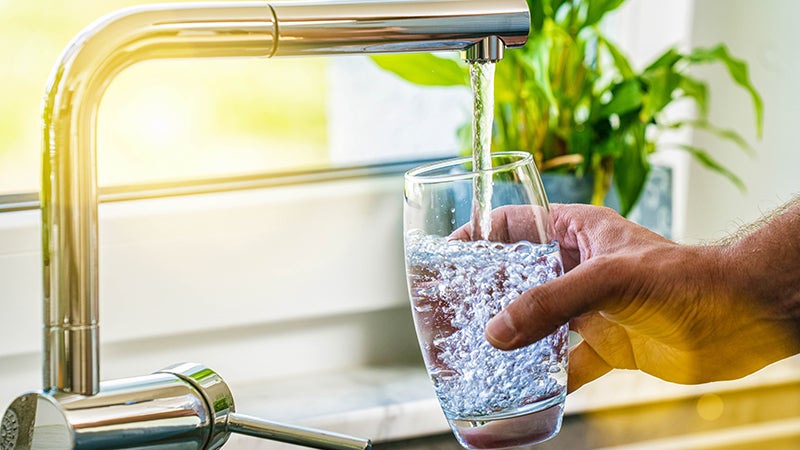Drinking water free chlorine conversion FAQs
Published 7:58 pm Monday, February 27, 2023
|
Getting your Trinity Audio player ready...
|
Along with the cities of Chesapeake, Norfolk, Portsmouth, Virginia Beach, Isle of Wight County, the City of Suffolk will undergo a conversion from chloramines to free chlorine disinfection in the water distribution system from March 8 to March 29. This preventative maintenance is intended to maintain the City’s water distribution system water quality. This helps us provide the highest possible water quality for you and your family.
What are chloramines?
Chloramines are a safe and common disinfectant used to treat drinking water. Chloramines are formed when free chlorine and ammonia are added at the treatment plant. This is a very stable and long-lasting drinking water disinfectant.
Why the temporary change to chlorine disinfection?
Chlorine is used as a routine preventive maintenance procedure to assure the highest quality of drinking water is delivered to your home.
Is chlorine disinfection new?
No. Chlorine has been the primary method to disinfect drinking water for more than 125 years. Regionally, chlorine was the primary drinking water disinfectant prior to October 2000 when conversion to chloramines was achieved.
Will I notice any change in my water?
You may notice a slight chlorine smell.
Is switching between disinfection methods safe?
Yes. The Environmental Protection Agency has determined that both chlorine and chloramines are safe disinfectants for bathing, drinking, cooking and everyday water use.
Can children and pregnant women drink chlorinated water?
Yes. If you have any other health-related questions or concerns, please consult with your family physician.
Will it affect my baby’s formula?
No.
What about people who are sensitive to chemicals?
The amount of chlorine will be extremely small, between 2.5 and 3 parts per million of water. If you have any questions, please consult with your family physician.
Can I wash open wounds with chlorinated water?
Yes.
Can I use chlorinated water on plants?
The small amount of chlorine in drinking water should not affect plants.
Will chlorine affect my plumbing?
No. Chloramines and chlorine disinfectants are safe for household plumbing.
Does bottled water contain chlorine?
Most brands do not contain chlorine but there are some bottled water companies that use chlorine to disinfect their water prior to bottling.
Will a carbon filter remove chlorine?
You should check with the manufacturer. Chlorine is normally removed with a carbon filter; however, an old carbon filter may not remove all of the chlorine.
Will letting water sit remove chlorine?
Yes. Chlorine will dissipate over time, but after 24 hours it should be refrigerated.
Can people on low-sodium diets or with diabetes use chlorinated water?
Yes. If you normally drink city water, the chlorine will not affect the salt content of the water.
Questions related to kidney dialysis patients
Note: Dialysis clinics, hospitals and medical centers are being notified directly by the City of Suffolk about the temporary switch to free chlorine disinfection.
What should kidney dialysis patients do if they have questions?
Follow your doctor’s recommendations. Medical centers that perform dialysis commonly remove the chloramines or chlorine that enters the dialysis machines. You should consult your physician if you have any questions or concerns regarding the use of water for dialysis.
Questions related to fish owners
Should I take special precautions with my aquarium or pond?
You should use water treatment products that remove chlorine and chloramines for your aquarium or ponds. Most pet stores have been selling de-chlorinating agents for years and generally have recommended using them for fresh and saltwater tanks. See your pet store supplier for more details.
Where can I get more information?
For health-related questions, please consult with your family physician.
For technical, water supply-related questions call the City of Suffolk Department of Public Utilities Water Quality Laboratory (757) 514-7040 between the hours of 7:30 a.m. and 4 p.m., or (757) 514-7034 after-hours.







